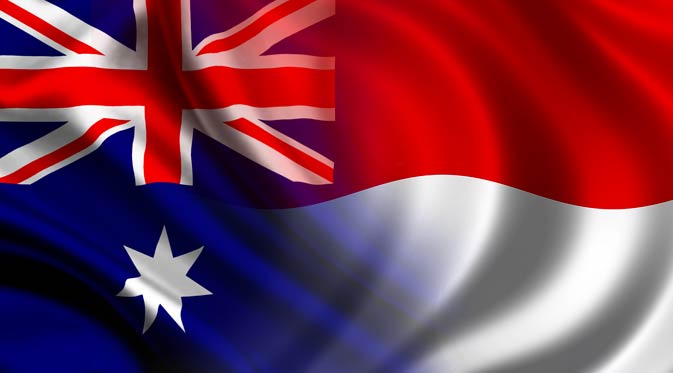How would you feel if you managed to gain plenty of understanding about your country from people of another country?
I have recently got back from a bilateral conference called Conference of Australian and Indonesian Youth (CAUSINDY) 2016. It was held in Nusa Dua, Bali, from 7-10 September 2016. After two years of studies in Australia, I felt the longing to learn further from the two countries that I feel so dearly of, Australia and Indonesia.
The conference aims to bridge the relationship and understanding between 15 delegates from each Australia and Indonesia. I was only expecting to learn strictly about Australia and Indonesia’s bilateral relationship, but little did I know I was going to learn so much about my country, more than ever.
As I comfortably arrived at the hotel lobby and met my fellow delegates, I was surprised to see how l lacked one important, yet overlooked, element: batik.
The majority of delegates, both from Indonesia and Australia, were wearing some of the nicest batik I have ever seen. And there I was, wearing a printed blue shirt that I bought in Melbourne. Moving on from the batik fiasco, the conference quickly amused me as we discussed about a whole range of things, from politics, the economy, technology, environmental sustainability, to bridging cultures between Australia and Indonesia.

However, one important question remains. How can Australia and Indonesia, the two countries so close to each other in proximity, yet very different in many aspects, can enhance their relationship, especially from the youth perspective?
Several significant key points out of the conference that struck me the most are:
- Australia thinks Indonesia needs Australia a lot more than Australia does for Indonesia.
- Indonesia’s current foreign policy is a lot more selective and deliverables-oriented than before.
- For the past few years, the Australia-Indonesia relationship can be summed up in one title: Pride and Prejudice
- A lot fewer Australians are studying Indonesian language in secondary / tertiary level of education, compared to the primary education level.
- According to a recent study by PricewaterhouseCoopers, Indonesia’s economy will have doubled Australia’s by 2030.
Another interesting discussion that came to light was about visa issues, both for Australian and Indonesian. It is known to almost everyone that obtaining an Australian working visa is really difficult, especially for international students after completing their studies. This is mainly due to Australia’s heavy orientation towards graduate skillset; they will only consider graduates who studied in the field that they deem important or ‘in demand’ by the Australian job market. Most of these are in the field of engineering, nursery, and information technology.
With this limitation, Australia is trying to implement other options to ease more international students to be eligible to work or study in Australia. Some of these include the 1-year tourist working visa, which will allow young job-seekers to work in Australia for a year. Nevertheless, the continuation of this will depend on the employers, or again, the Australian immigration.
However, I encountered the fact that it is also difficult for Australians to obtain a visa to stay and work in Indonesia. They are also mostly hard-hit by the difficulty to create a business in Indonesia. As an Indonesian living in Indonesia, this particular issue was almost completely foreign to me. One day the government could have particular bureaucratic policies of allowing your business to take place, but the next thing you know, the whole policies had been changed.
It takes two to tango, indeed.
More than anything else, what impressed me the most is the advanced and eloquent Bahasa skills that most of the Australian delegates have. Some of them could even present their project entirely in Bahasa. Furthermore, an Australian delegate is so highly proficient in Bahasa, even when it comes to Indonesian ‘bahasa gaul’ (colloquialism). Also, they are highly knowledgeable about Indonesian politics – the political figures, the history – as well as Indonesian culture – from food, batik collection, to Indonesia’s travel destination. In fact, one of the Australian delegates actually teaches Balinese dancing in Australia.
As an Indonesian citizen who had spent 4 years in Australia, I can’t help but have a sense of belonging to both countries. However, I have learned that I have a lot of homework to do, especially when it comes to understanding my own country. Both Indonesia and Australia mean a lot to me. I feel obliged to foster my further knowledge about both countries, in order to be able to meaningfully contribute to the enhancement of our bilateral relationship.
I may have gone “mengglobal” because of my studies, both in Australia and the United Kingdom. However, I shall not forget that I am, first and foremost, Indonesian. This goes to all of you out there who are venturing a world of opportunities in your academic or career pursuit. Indonesia is abundant of history, cultural diversity, political dynamic, and societal challenges. More importantly, our economy is set to grow faster and bigger in the years to come. Other countries may have not noticed our very own hidden potential yet, but some have already learned a lot more about us than we have.
“Mengglobal” is indeed a noble goal, but combined with “membumi”, we could certainly rise to be one of the world leaders.
All photos are provided by the author
Edited by Hadrian Pranjoto










